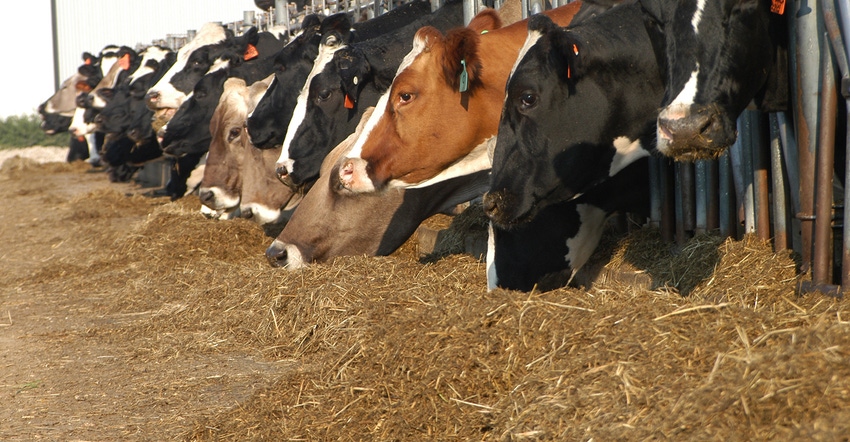December 6, 2017

My wife and I have a partner on our 600-cow, 1,500-acre dairy. He owns 10% of the dairy herd. He bought some of the shares, and we’ve gifted him the rest over the past six years. He worked for us for a couple of years before he became a partner six years ago. Now he wants to cash out his money and end the partnership. The problem is he wants to get paid book value for his share. I’m not sure it’s worth what he thinks his share is worth. We don’t mind buying out his share, but our issue is that he is expecting us to pay more than we think it is worth. How do you suggest we resolve this matter?
Hodorff: If your partner has 10% of the dairy herd, he owns possibly 120 head of cattle. This would include from baby calves to milk cows. If you are set on not purchasing these animals, then you could set up a process for him to take his owned cattle out of your herd. He owns 10%, so a way to determine his share is this: You could agree that every 10th cow is his. This would be random and would be a mixture of dry cows to fresh cows. Heifers could be determined by offspring of the cows he owns or by every 10th animal.
When you look at book value, that value is more of a balance sheet figure. Realistic values are what you would receive after commissions or sale expenses. Your partner could then sell his animals at public auction or by private treaty.
Miller: Buying out a partner can be a difficult process. Usually, the legal documents forming the entity outline buyout circumstances or how to dissolve the entity. First, go back to the legal documents to see if you already have a road map for how to accomplish the buyout. If that is not the case, hire an appraiser you both agree upon to appraise the assets. You may want to get a market value and liquidation value in order to negotiate likely something in between, since your partner wants to liquidate his interest in the business.
Finally, if you are not able to negotiate an agreeable settlement, you could both agree upon a mediator to assist in resolving the buyout. Contact the Wisconsin Farm Center at the Department of Agriculture, Trade and Consumer Protection for mediator suggestions. Good luck with the buyout of your partner.
Wantoch: Partnerships can be flexible arrangements for farm families who are interested in combining their farming enterprises or transitioning to the next generation, or for an existing farmer looking to transfer to a new farmer. You may even find yourself involved in a partnership without necessarily knowing it because of the way you behave in conducting business with someone else. Unlike a corporation, there is no requirement for a written operating agreement between partners. However, these agreements help you avoid unintended consequences when an issue like this one arises.
Written partnership agreements should include information such as partnership name, goals and purpose, location of separate checking account, and who has check-writing authority and decision-making or job responsibilities. The agreement may include the listing of assets to be included and excluded from the partnership, and value of the assets. Written agreements should also provide details regarding the withdrawal from the partnership. These details could list how to value the assets, such as mutual agreement between partners or a third-party appraisal, along with timeline for payment. This situation can be stressful and expensive to resolve without a written partnership agreement.
Agrivision panel: Doug Hodorff, Fond du Lac County dairy farmer; Sam Miller, managing director, group head of agricultural banking, BMO Harris Bank; and Katie Wantoch, Dunn County Extension agriculture agent specializing in economic development. If you have questions you would like the panel to answer, send them to: Wisconsin Agriculturist, P.O. Box 236, Brandon, WI 53919, or email them to [email protected].
You May Also Like




